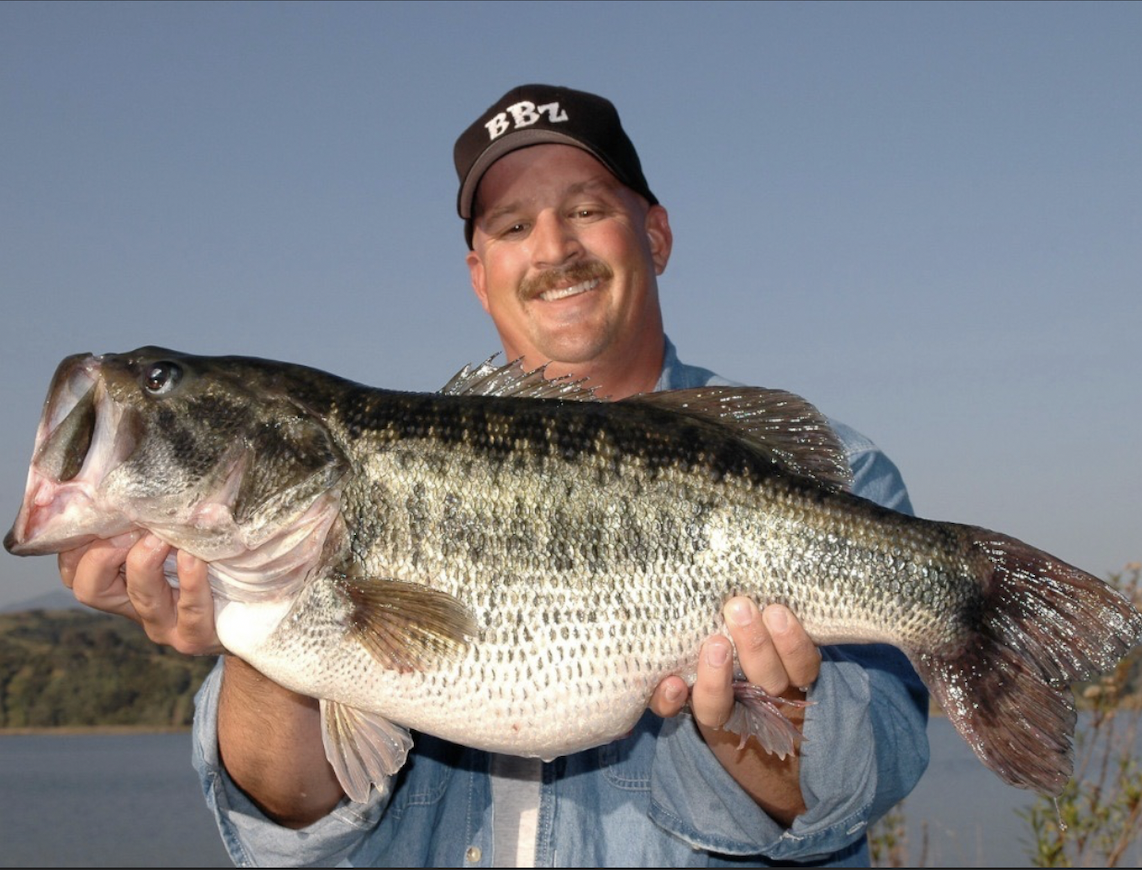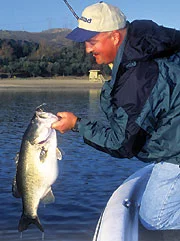Don't Believe It: Truth, Lies And Measuring Tapes (Part 2 of 2)
(Editor's note: This is part 2 of a 2-part column that works to disprove common myths about big bass behavior.)
In the previous column, we began a list of some popular notions about big bass behavior. While each contains an element of truth, these angling maxims often do more to lead a fisherman away from success than toward it. Instead of providing clues to better tactics and strategies, they deliver handy excuses for failure.
3. Big bass are loners.
Not true. While they certainly school less than smaller fish, there are numerous times during the year when larger bass group together in "wolf packs" to enhance their feeding opportunities. Of these, some of the most significant occur in the fall, late winter and early pre-spawn periods. Bigger bass, even those in the 10-pound range and beyond, are not at all opposed to a mutually beneficial hunting experience.
Photo: Bill Siemantel
Bill Siemantel and Mike Jones say big bass aren't loners – anglers just think they are.
So how did this little bit of fiction develop? The simplest answer may be that very few anglers have ever caught more than one large bass at a time. And since most of these were viewed as singular, monumental events, the loner myth gained willing converts. These anglers had fooled the upper percentile of the bass population and never considered the possibility that one fish simply got to the lure ahead of the pack.
Another obvious explanation is that most of the bass-fishing experience occurs in stained water where the likelihood of seeing a wolf pack is much slimmer. Yes, the clear waters of western impoundments often provide anglers with the sight of huge bass collectively chasing down baitfish. But that doesn't mean it isn't happening where you fish.
All of this brings us back to the fact that most fishermen do not target bigger bass with any real sense of purpose. They more or less focus on the same general areas with the same types of baits and never consider the options. For most, the idea of catching five fish over 6 pounds on a single day takes a cosmic convergence so rare that the thought of repeating it with any degree of consistency seems absurd.
4. Big bass are most vulnerable during the spawn.
With the advent of bed-fishing, this little fantasy has gained even more steam in recent years. The proponents of this angling discipline do occasionally produce some impressive results, but more often than not, they are stymied by any number of weather and water factors. Like most bass anglers, their success with big bass is largely dependent on excellent timing and a strong dose of luck. Ask any veteran fisherman: Luck is a lousy partner.
The question that always goes unanswered is, "If big bass are so vulnerable during the spawn, why is it still so difficult for anglers to catch them?" Spring big-bass catch statistics remain pathetic, even considering that this period receives some of the greatest angling pressure of the entire year.
Once the spring season has passed, the overwhelming majority of fishermen see their chances of catching a big fish evaporate with the advent of summer. The big fish have gone where big fish go and the chances of catching one fall into the same category as a "Pick Six" lottery game.
Guess what? Big bass are up more often than you think and far more accessible than the stats would lead you to believe. Throughout the year, bigger bass use every section of the water column to satisfy their prodigious appetites. What separates those who catch them from those who do not is knowledge and the belief that big bass can be targeted in any season and under any conditions. The inability to cross this mental chasm is precisely what holds you back.
5. Big bass tactics don't apply to my situation.
This is the biggest lie of all. This is the one untruth that keeps most anglers from ever reaching their potential as bass fishermen. In every region of the world where bass are gamefish, there exists a scale of what constitutes a "big fish." Five pounds? Seven pounds? Ten pounds? A "teen" fish? It's all relative to the area you call home.
Whether it's a natural lake, a river impoundment or the so-called "classic southern bass water," there are big bass in those environments functioning as the "alpha predator." In attaining this designation, bass of uncommon size do things differently. Anglers who ignore this fact and then apparently do everything in their power to avoid this knowledge accept angling mediocrity with open arms. Changing how you think is the first step to changing how you fish.
- End of part 2 (of 2) -

